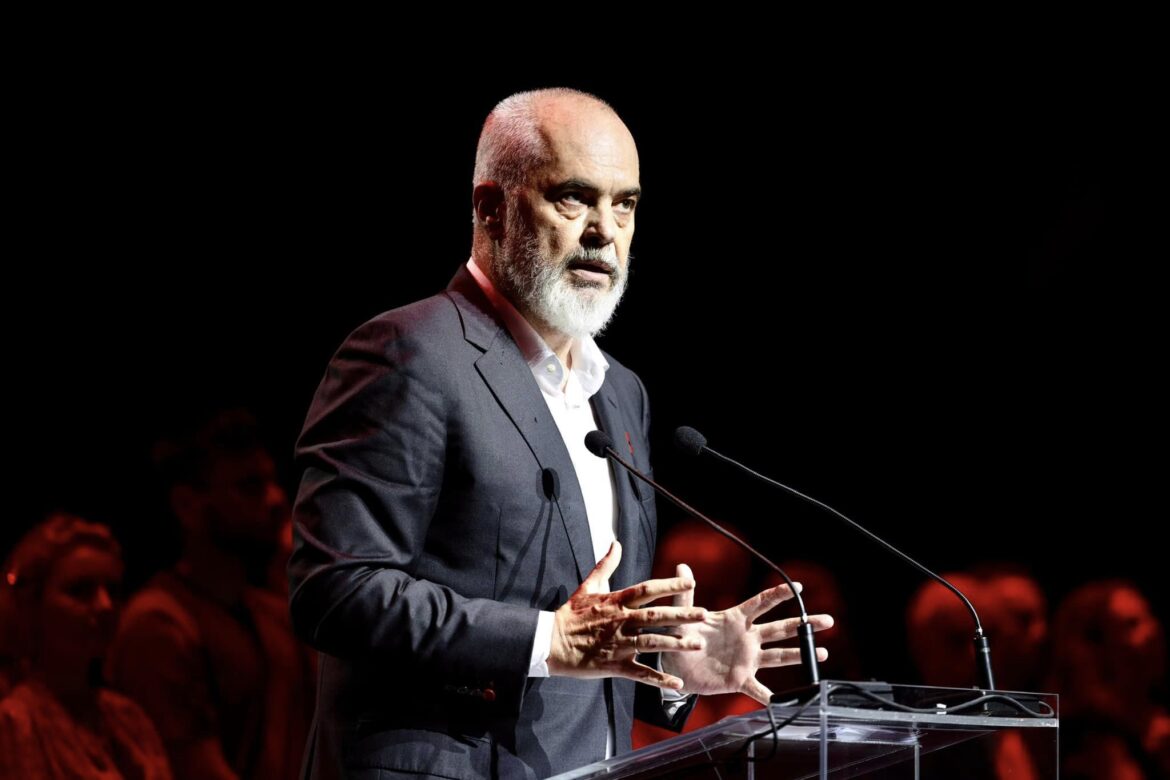While Edi Rama’s speech had just concluded on the balcony of an apartment in Acharnon, on one of Greece’s main boulevards, a Greek citizen was raising the Greek flag. Usually, the flag is raised for national holidays or to express solidarity with their homeland. In this case, his explanation was unusual. “Edi Rama has attacked us,” he said. “He must know well that this is Greece.” He was visibly upset.
There are many questions about how Greece as a whole and Greek politics in particular will perceive Edi Rama’s speech. It was certainly unusual, uncompromising, and above all unacceptable for the issues it raised. Addressing the largest Albanian diaspora in a Western country, and one most closely linked to Albania, Edi Rama touched upon all their wounds one after another, from their journeys to the mountains for a better life, facing racism, violence, name changes, the ban on raising the flag by outstanding Albanian students in Greece, and so on, up to our historical problems with Greece such as the legacy of war laws, lack of pension harmonization, and recent tensions.
But the language describing the speech was merely a plea around which all the problems unfolded one after another. His plea was for Greece to accept Albania. Accepting Albania as a neighbor without problems and with a commitment to being a good neighbor is a challenge that is new for Greek politics in relation to Albania but overdue for Albania.
Greece is a friendly country to Albania, but Albania is seen by Greece as a listening neighbor. Greece needs to decide to accept today’s Albania, a country that needs more imported labor force than exported, a country that is at the peak of economic development and tourism, and is on the path to European integration.
Greece’s official battle and all Greek politics regarding the Beleri issue were disproportionate, exaggerated, and above all revealed the fact that Greece still does not accept Albania neither when acting as a European state, nor when operating with the justice created as a mechanism by the West, nor when it does not adhere to the desires of Greek politics for specific issues.
Everything that happened shows that Greece accepts Albania as a listening neighbor. Everything else is unacceptable. And the essence of Edi Rama’s speech is that they must accept that Albania is not only a friendly neighbor to them but also a country that is developing and has a European agenda.
On the other hand, the Greek minority in Albania, which could turn into a bone of contention between the two countries, is in complete harmony with Albanian society. They suffer and enjoy the same problems as any other Albanian. Besides positive discrimination in the rise of the two Greek minority municipalities, Albania has no special laws persecuting minorities; on the contrary, it is one of the most liberal countries in Europe in terms of minority rights, in deep contrast to Greece.
Also, large Greek businesses in Albania were politically favored in the 2000s and were present in banks, cellular companies, large construction companies, etc., and those positions were not lost due to any special policies of Albania against them but due to market laws and, why not, problems stemming from the Greek crisis and corruption.
The only problem the Greek minority in Albania faces is their political marginalization, mainly resulting from Athens’ policies. Athens’ attempt to support political representation in Albania with two or three appointed individuals from Athens has made it impossible for the Greek minority to have their deputies in Albania, but rather they delegate them to the lists of PS or PD. And this is the consequence of Athens’ clientelistic policy with specific names in Albania, destroying the competition within the Greek minority, or imposing names like Agimi i Art in the case of Beleri.
This has led to both Greek minority municipalities in Albania being won by the Socialist Party and not by PBDNJ, as would be normal.
Edi Rama’s speech is not immediately digestible. Some, of course, found it hard to swallow. Others are swallowing it with effort.
Of course, it was not Reagan’s speech at the Berlin Wall before it fell, but it was a peaceful call to break down every wall between Albanians and Greeks and accept each other as we are.
But if they take it calmly and look back at what happened, they should understand that the speech given today is not motivated by the past but by the stage where Albania is today. It is a speech whose weight Albania is ready to bear, with the same stoicism that Albanians have carried on their backs throughout their 30-year ordeal in emigration.
That speech is a call for Greece to accept the Albania of 2024 as a country that Greece needs as a friendly neighbor, a business and political partner, and a major ally on the road to European Union integration.
And with the acceptance of a new reality, with realism, the solution to every problem begins. First, we must accept each other with all the problems we have.
If we are not ready for this, we are not ready for anything.
(Opinion by Mero Baze)

